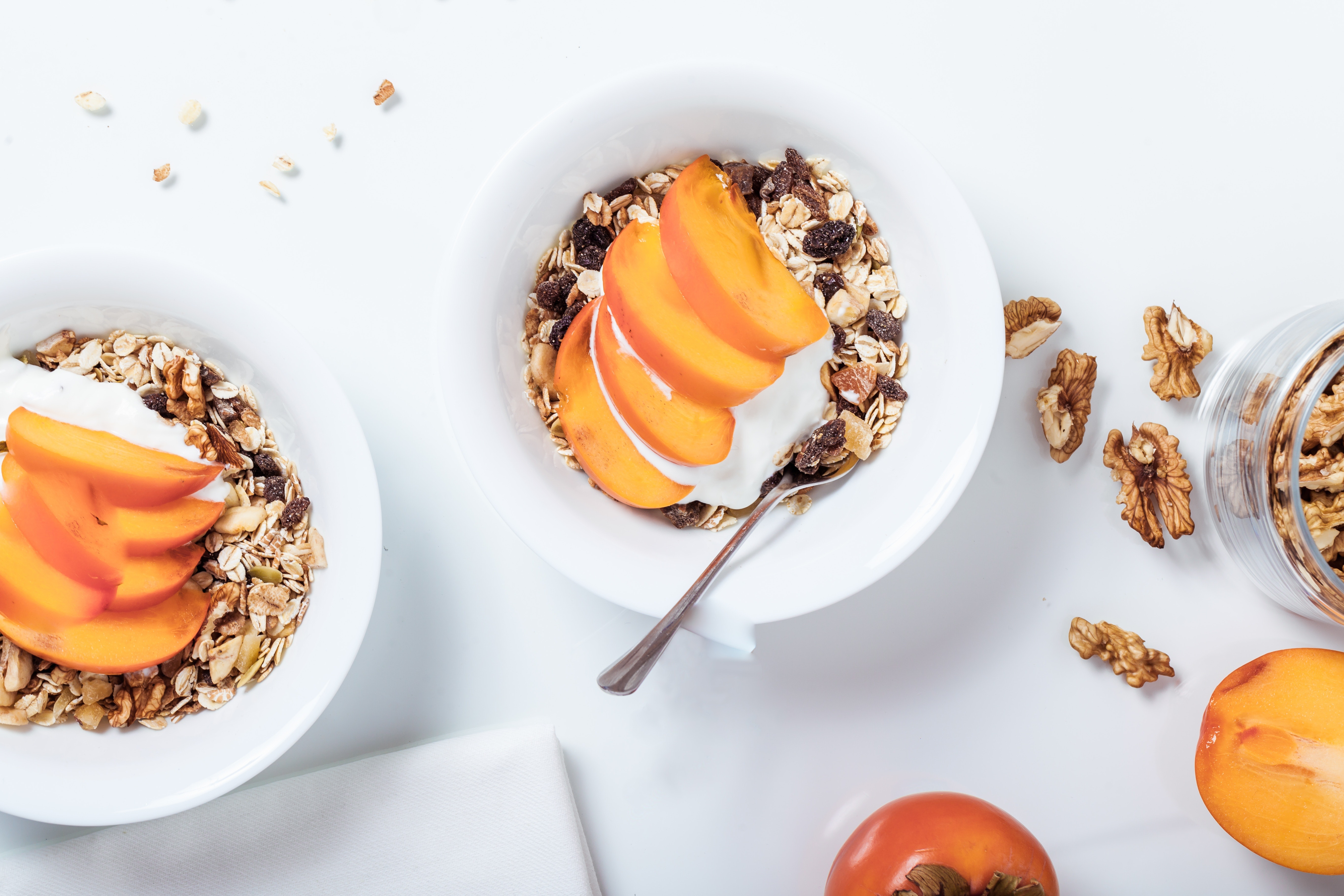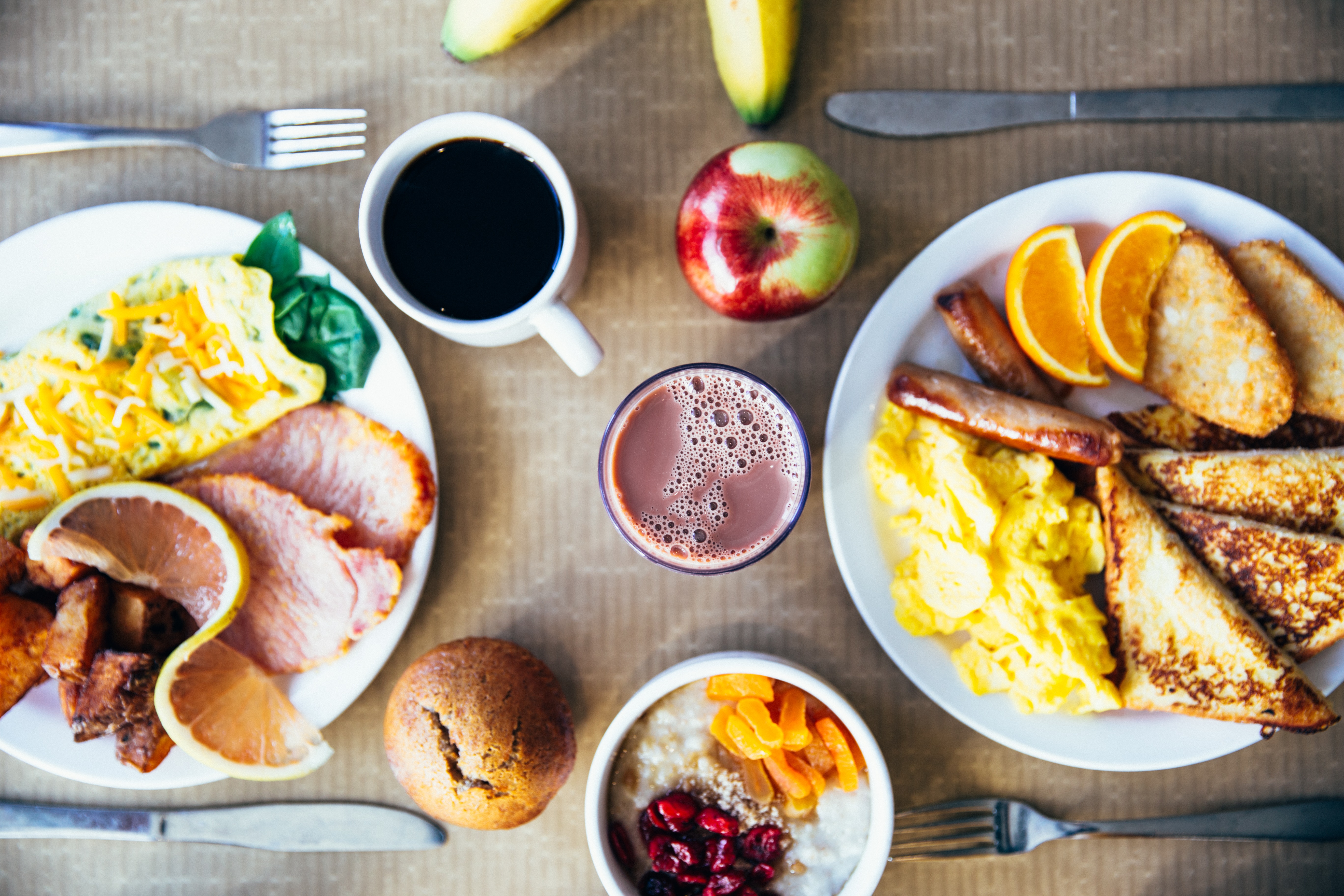Healthy Eating for Preschoolers: The Importance of Breakfast

Breakfast is one of the most important meals of the day.
By fueling your child with important vitamins and minerals, a nutritious morning meal helps your child to concentrate in the classroom.
Furthermore, by building a foundation of healthy eating habits, your child is less likely to crave sugary junk foods in the future.
At our Kids Konnect preschools in Pacifica, San Mateo, Oakland and San Leandro, we offer a varied selection of healthy snacks to keep your child’s hunger at bay.
So, why exactly is it so important that children eat breakfast every day?
The Benefits of Eating Breakfast
Providing your preschooler with a breakfast containing of combination of complex carbohydrates, fiber, protein and good fats leaves your child feeling full, alert, and ready to face the day.
These essential nutrients are fundamental for optimal growth and development and so a well balanced morning meal can help children to have better problem-solving skills, enhanced hand-eye coordination, and critical thinking abilities.
In order to learn at preschool, children need to have a good attention span, the ability to concentrate, and a strong memory so that they can learn through play.
Breakfast gives your child the fuel their bodies need so that they do not feel tired, restless, or irritable.
A preschooler’s energy levels can significantly drop by midmorning if they do not eat something after having been asleep for 8 to 12 hours.
It is also believed that eating breakfast can help your child to maintain a healthy weight.
A healthy meal kick starts the body’s metabolism and it is this process through which the body converts food into energy and burns calories.
Furthermore, this can lower a child’s blood cholesterol levels and also lead to reduced stomach complaints related to hunger.
Correspondingly, it is no surprise therefore that children who do not eat breakfast sometimes consume more calories throughout the day and are more likely to be overweight
Not eating breakfast might lead to snacking on high calorie foods or overeating at lunchtime and so skipping breakfast is not recommended.

Brilliant Breakfast Ideas
In an ideal world, your child would be treated to a delicious selection of whole grain toast, fresh fruits, and low fat yogurts each morning.
However, when rushing to get yourself, your preschooler, and any other family members ready in the morning, making a healthy breakfast can be difficult.
That being said, there are a few steps you can take to make mornings easier.
Start by stocking your kitchen with healthy breakfast options such as whole grain cereals, low fat dairy products, and fruits.
It can also be a good idea to prepare as much as you can the night before.
You can chop and weigh out any ingredients in advance and why not encourage your preschooler to lay the table and get dishes and utensils ready.
If getting everything prepped still proves to be a burdensome task, consider getting up 10 minutes earlier or provide quick meal options such as smoothies that can be enjoyed on the way to work or preschool.
Keeping things fresh and exciting is crucial and will stop your child from becoming bored.
Mix things up by scattering some chopped fruits in with their cereal or serving half a wholegrain bagel with bananas and peanut butter.
Breakfast smoothies and other sugar free juices can also be an efficient source of nutrients and energy that your little one needs for the day ahead.
Click here for more exciting healthy meal ideas.

Set an Example
Ultimately, remember to let your child see you taking time to prepare and enjoy a balanced breakfast of your own on a daily basis.
Above all, demonstrating to your child the importance of refueling your own brain and body with a healthy morning meal can encourage them to take on habits and routines that will help them to thrive in preschool and beyond.
How do you get your preschooler excited about breakfast and what are some of your favourite things to eat in the morning? Let us know in the comments below.
Eating a healthy breakfast fuels your child’s body and brain so that they can grow and develop new abilities such as critical thinking skills.
Check out our last blog post for an overview of critical thinking skills for preschoolers.

